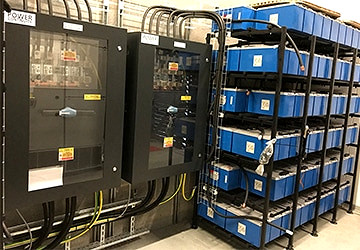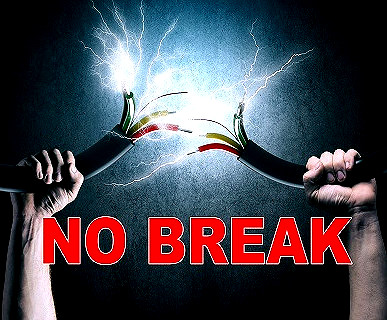Ensuring Uninterrupted Power: A Comprehensive Guide to Generator Servicing, Maintenance, and Removal
Introduction
In a world where electricity is the lifeblood of nearly every industry and household, generators play a crucial role in ensuring uninterrupted power supply during outages. However, like any other machinery, generators require regular servicing and maintenance to operate efficiently. Additionally, there may be instances where generator removal becomes necessary. In this blog post, we will delve into the importance of generator servicing and maintenance, as well as the considerations involved in generator removal.
Generator Servicing and Maintenance
Regular servicing and maintenance are paramount to the optimal functioning of generators. Neglecting these essential tasks can lead to decreased efficiency, increased fuel consumption, and potential breakdowns during critical moments. Here are some key aspects of generator servicing and maintenance:
- Scheduled Inspections: Conducting scheduled inspections is crucial to identify potential issues before they escalate. This includes checking for leaks, inspecting fuel and coolant levels, and examining electrical connections. Regular visual inspections can catch problems early on, preventing costly repairs and downtime.
- Oil and Filter Changes: Just like any internal combustion engine, generators require regular oil and filter changes. Clean oil ensures proper lubrication of engine components, reducing friction and extending the generator’s lifespan. Neglecting oil changes can lead to overheating and engine damage.
- Load Bank Testing: Load bank testing involves applying an artificial load to the generator to ensure it operates at its full capacity. This test helps identify any issues related to the generator’s performance under load conditions and ensures that it can handle the required electrical load during an actual power outage.
- Battery Inspection: The generator’s battery is crucial for starting the engine, and a malfunctioning battery can render the generator useless. Regularly inspecting the battery, checking for corrosion, and ensuring proper voltage levels are essential for reliable generator performance.
- Cooling System Maintenance: Generators rely on an efficient cooling system to prevent overheating. Regularly checking and cleaning the cooling system components, such as radiators and fans, is vital to maintaining optimal operating temperatures.
Generator Removal
There are instances when generator removal becomes necessary, whether due to upgrading to a newer model, relocating the generator, or decommissioning it. Here are the key considerations for generator removal:
- Professional Assessment: Before initiating the removal process, it’s essential to have a professional assessment of the generator and its surroundings. This includes evaluating the condition of the generator, determining the best removal method, and assessing any potential environmental impacts.
- Compliance with Regulations: Ensure that the generator removal process complies with local regulations and safety standards. This may involve obtaining necessary permits and adhering to guidelines set by environmental agencies to minimize any adverse effects on the surrounding environment.
- Disconnecting Utilities: Before removing the generator, disconnect it from all utilities, including electrical, fuel, and coolant connections. This ensures the safety of both the removal team and the surrounding environment.
- Safe Dismantling and Disposal: Generator removal involves dismantling the unit, which should be done with utmost care to avoid any damage to components or surrounding structures. Additionally, proper disposal of removed parts and fluids must follow environmental regulations.
- Reinstallation Planning: In cases where the generator is being relocated or replaced, thorough planning for reinstallation is crucial. This includes preparing the new site, ensuring all necessary utilities are in place, and coordinating the transportation of the generator to its new location.
Conclusion
Generator servicing and maintenance are essential for reliable performance during power outages, and neglecting these aspects can lead to costly breakdowns. Similarly, generator removal requires careful planning, adherence to regulations, and professional execution to ensure a smooth transition and minimize environmental impact. By prioritizing these aspects, businesses and individuals can ensure that their generators are always ready to provide the power needed, whether through routine operation or during the removal process.
- Share

YOU MIGHT ALSO ENJOY
Why Choose a Dumpster Rental for Junk Removal in Northwest Arkansas?
Stephen Romero - March 7, 2025
How Can Industrial Racking Improve Warehouse Organization?
Stephen Romero - March 7, 2025
Why Choose a Professional Dog Trainer in Bradenton for Your Pet?
Stephen Romero - March 7, 2025
search
must read
The Ultimate Guide to Finding the Best Driving School Near Me in Springfield
Stephen Romero - March 7, 2025
recent post
ARCHIVES
- March 2025 (7)
- February 2025 (9)
- January 2025 (8)
- December 2024 (25)
- November 2024 (40)
- October 2024 (11)
- September 2024 (1)
- July 2024 (10)
- June 2024 (11)
- May 2024 (31)
- April 2024 (15)
- March 2024 (19)
- February 2024 (6)
- January 2024 (7)
- December 2023 (11)
- November 2023 (1)
- July 2023 (13)
- June 2023 (21)
- May 2023 (27)
- April 2023 (23)
- March 2023 (16)
- February 2023 (31)
- January 2023 (27)
- December 2022 (11)
- November 2022 (12)
- October 2022 (11)
- September 2022 (11)
- August 2022 (14)
- July 2022 (13)
- June 2022 (19)
- May 2022 (17)
- April 2022 (10)
- March 2022 (12)
- February 2022 (8)
- January 2022 (9)
- December 2021 (19)
- November 2021 (4)
- October 2021 (6)
- September 2021 (4)
- August 2021 (4)
- July 2021 (10)
- June 2021 (6)
- May 2021 (2)
- April 2021 (2)
- March 2021 (45)
- August 2020 (31)
- July 2020 (30)
- June 2020 (29)












